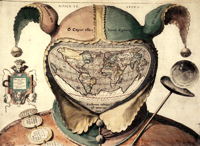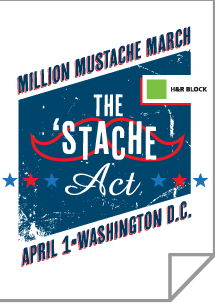Ambiguous April Fools —
Every year on April 1st there are a few news items that stump me. Are they, or are they not, April Fools? Here are the puzzlers from this year:
 Virgin's Animal Active gym for pets
Virgin's Animal Active gym for pets
The
video for it looks like a spoof, and the language of the
press release sounds kind of jokey:
The health club, which is being called Animal Active, is scheduled to open its doors later this year and will be a haven for animals in need of exercise or lifestyle management. Trained exercise co-ordinators will run a series of group exercise classes which will include Pooch Paunch Buster, Puuuroebics, Wag Attack, Canine Crunch and Pawlates.
At first I assumed it was a joke, but the weird-news expert Chuck Shepherd pointed out to me, "If it's fake, it's not all that original, for there are several pet spas in the U.S. and Britain that have regimens for overweight pets, and there are certainly treadmill rehab programs for injured animals." Plus, there's still no indication from Virgin that it was a joke. So maybe it's real.
The Invisible Lapland Tree House
As reported in The Sun, this is a new hotel in Lapland that consists of a box made of aluminum and covered in mirrored glass, that's perched in a tree.
The mirrored walls are specially designed to make the walls disappear into the landscape by reflecting the woodland canopy surrounding them. Visitors have to climb into their room by a rope ladder.
Doesn't sound implausible. And there are none of the usual clues (such as names that are anagrams of April Fool). But on the other hand, the picture looks photoshopped, this story hasn't been reported by anyone else, and the last line reads like a joke: "If the guests can actually find it, it should be very successful." Probably fake.
 Masturbation Relieves Hay Fever
New Scientist reported
Masturbation Relieves Hay Fever
New Scientist reported that "Masturbation could bring hay fever relief for men." It's an odd story, and even odder to report it on April 1st. But this same story was also making the rounds
back in Sep 2008, when it first appeared in The Journal of Medical Hypotheses. So I'm concluding that it's not an April Fool.





 There's a lot of speculation in the town of York,
There's a lot of speculation in the town of York,  Virgin's Animal Active gym for pets
Virgin's Animal Active gym for pets
 A new site (in French), roulez-leko.com, appears to announce the imminent introduction of the Leko, "the car by Ikea". The suspicious part: the car is set to debut right around April 1st. However, it could be legitimate because the first week of April is France's Sustainable Development Week, which the text on the site states that the debut is part of. We'll know soon enough if it's a hoax or something real.
A new site (in French), roulez-leko.com, appears to announce the imminent introduction of the Leko, "the car by Ikea". The suspicious part: the car is set to debut right around April 1st. However, it could be legitimate because the first week of April is France's Sustainable Development Week, which the text on the site states that the debut is part of. We'll know soon enough if it's a hoax or something real.